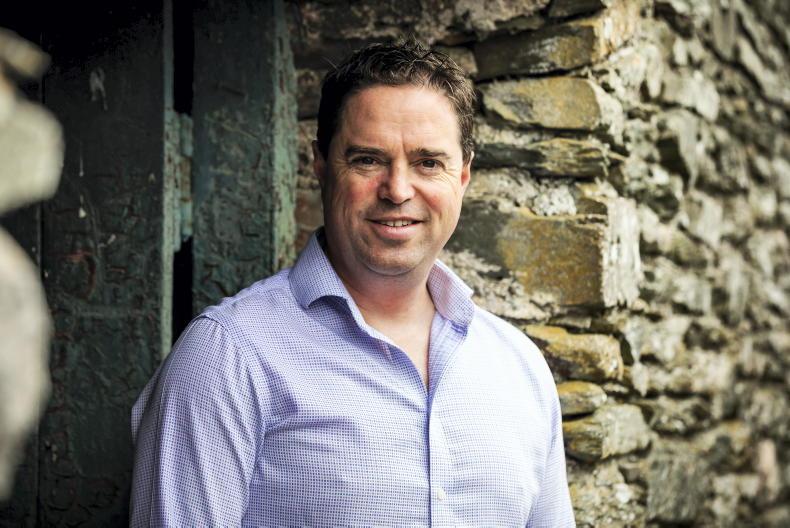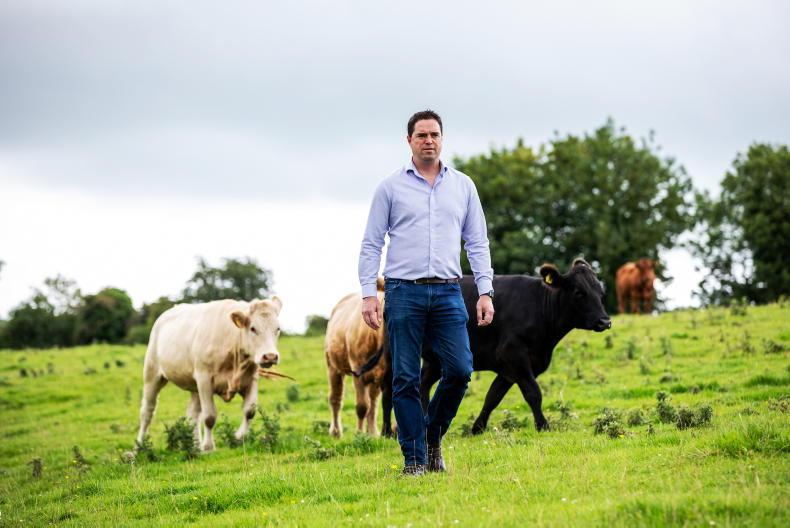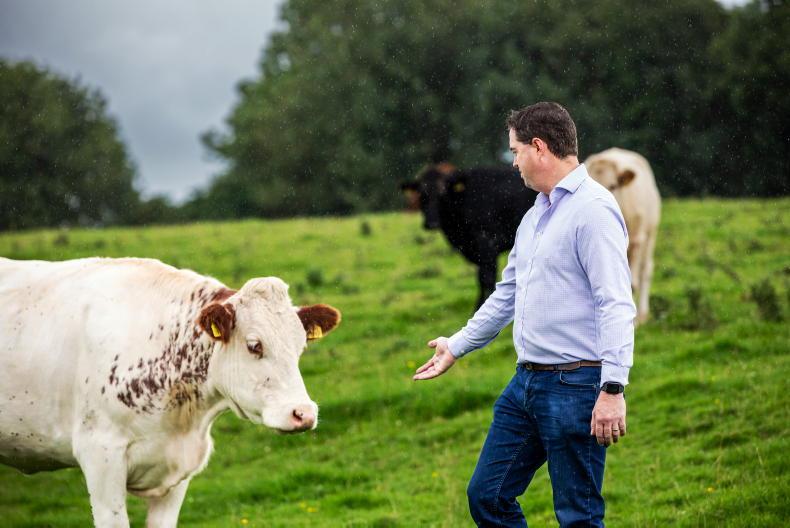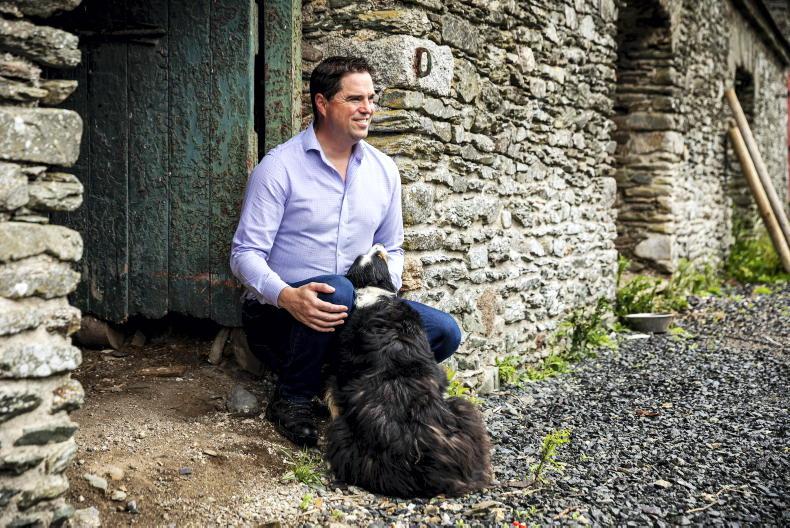Some of the Rural Independent TDs “terrorised farmers” with their messaging around the EU’s nature restoration law, Minister of State at the Department of Agriculture, Martin Heydon, has said.
Minister Heydon’s Fine Gael is affiliated with the EPP group in the European Parliament, which sought to have the nature restoration law thrown out.
The EPP group has been accused of misrepresenting elements of the proposals and was criticised by other groupings in the Parliament after it walked away from talks seeking a compromise on the proposals in May, with farmers’ future livelihoods and food security among the concerns it gave for doing so.
Last weekend, the Irish Wildlife Trust published an article, which accused Irish farm organisations of “increasingly lurching to the far right, happy to spread conspiracy theories, undermine scientists and their findings and convince their members that their way of life is under attack by an urban elite that cares little for them or their values”.
When asked by the Irish Farmers Journal this week if he thinks there is a far right or overly populist element creeping into farm organisations, Minister Heydon said he did not believe so, but added that populism was present in Irish politics.

The minister spoke to the Irish Farmers Journal on his farm in Co Kildare during Farm Safety Week, fresh from announcing a €500,000 investment for Teagasc to procure calving and cattle injecting simulators for agricultural colleges.
“I do think that there is populism in Irish politics in general. If I think of nature restoration, if I think of some of the messaging of Rural Independents and others, they terrorised farmers and that was something I felt very strongly that wasn’t right.
“What we’re seeing now, through steady negotiation with Europe, we were able to come to a solution,” he said.
Farm Safety Week
The minister was speaking to the Irish Farmers Journal on his farm in Co Kildare during Farm Safety Week, fresh from announcing a €500,000 investment for Teagasc to procure 11 calving simulators and 11 cattle injecting simulators for agricultural colleges for training young farmers.
“The most common question probably that I get asked by people not involved in farming is: how do we have so many farmers in their 70s losing their life in farm safety incidents?
“In every other profession, most people are retired at that stage and aren’t out doing that kind of physical labour.
“Succession is a key part of that. We obviously have a very high average age of farmers in Ireland; that’s a challenge for us.
“Too few farmers have the [succession] conversation and some don’t have the conversation at all, or they maybe have a succession plan that isn’t thought-out or isn’t consulted with,” he said.
Farm safety can’t be a topic that is dealt with in isolation, he said.
“That’s why now, under the new CAP, [I wanted ] to make sure there was farm safety and training elements as part of the SCEP, ACRES, TAMS, and that with any connection that we have with farmers, where farmers are engaging with the State, there’s a farm safety element to that,” he said.
We obviously have a very high average age of farmers in Ireland; that’s a challenge for us. Too few farmers have the [succession] conversation and some don’t have the conversation at all
There are three elements to farm safety, Minister Heydon said.
“The first one is identifying the risk – getting farmers to identify the risks and training them to look out for the risks.
“Secondly, to then provide the investment for them to make that change – what we’re doing in terms of various different grant schemes, TAMS in particular.
“Then, the third piece is working with partners, whether that’s with the farm organisations, with Teagasc and others – that’s how we really deliver.”
Macra payment proposal
Commenting on Macra’s proposed €484/week payment for farmers to retire, the minister said he is “very mindful of previous retirement schemes, where a farmer who has so much knowledge to give and had such a role to play, even when they retire, was afraid to be seen walking across the yard carrying a bucket that they would have been penalised and lost everything”.
“It was a lot of stress and strain and it also was a really expensive scheme in terms of what it cost in resources.
“What I want to make sure is that we want to put more money into succession, but whatever money we spend on top of what we’re spending already, that it is very targeted,” he said.
Rewetting
On rewetting, he said that where farmers want to voluntarily rewet their land “there has to be a pot of money there to support that, and that money needs to be new and separate to the CAP”.
When asked if he would rewet his own land, he said: “There’d be a few wet spots, but generally it wouldn’t have been land that needed to be reclaimed. So no, but who knows down the line?
“It depends on whether you’re full-time farming or part-time farming.

“There’d be a few wet spots, but generally it wouldn’t have been land that needed to be reclaimed." \ Philip Doyle
“Me and my wife are farming here. I envisage a time when I’m back full-time farming again, that’s my ambition and some of my children will do that with me. As of now, I’m focused on my drystock and tillage.”
MACC
Commenting on the new MACC launched last week, Minister Heydon said he believes Irish agriculture will be very close to the 25% emissions reduction target, and could meet it.
He said Irish farmers are on the cusp of reversing those trends [in emissions and water quality].
“Once those trends change, we have to work doubly hard to make sure they never slip back.”
Calf welfare
The minister is “appalled” by any mistreatment of animals.
“I was raised on this farm here with parents who instilled in me a love of animals, particularly calves.
“We’re suckler farmers. You treat the calf, you mind it like your own. That’s reflective of 99% of farmers in this country,” he said.

The minister is “appalled” by any mistreatment of animals. \ Philip Doyle
“We have very strong animal welfare rules in place and anybody who’s been seen to breach those should be dealt with by the full rigours of the law. By and large, what was portrayed in that programme is not common practice.”
Beef exports to China
“It’s really hard when you’ve had a few years of no supply,” Minister Heydon said.
“Bord Bia did their best to maintain their relationships out there, but just like in 2018 when we got access, there’s a slow build up.
“I expect that that could turn a corner very quickly. We have a number of Chinese buyers coming over to Ireland at the end of July,” Minister Heydon added.
He said 1,000t of Irish beef valued at €5.5m was exported from January to April.
“We want to reduce our dependency on the UK market – that’s going to be really important as they make further trade deals, so markets like China and others are very important.”
Next election
With the next Dáil term running into an election cycle and Fine Gael losing a number of high-profile rural TDs for the next election, the minister said it is “definitely” his intention to seek to be re-elected.

The minister said it is “definitely” his intention to seek to be re-elected. \ Philip Doyle
“It’s my third term as a TD, my first as a minister, and this has been like my dream job,” he said.
He said he has no plans to run as an MEP in Brussels next year.
Dairy reduction scheme
The Department of Agriculture is currently carrying out modelling and analysis of different proposals for a dairy reduction scheme, the minister confirmed.
He said he remains to be convinced that a reduction scheme “would be value for money and that it would deliver for farmers and for agriculture”.
Some of the Rural Independent TDs “terrorised farmers” with their messaging around the EU’s nature restoration law, Minister of State at the Department of Agriculture, Martin Heydon, has said.
Minister Heydon’s Fine Gael is affiliated with the EPP group in the European Parliament, which sought to have the nature restoration law thrown out.
The EPP group has been accused of misrepresenting elements of the proposals and was criticised by other groupings in the Parliament after it walked away from talks seeking a compromise on the proposals in May, with farmers’ future livelihoods and food security among the concerns it gave for doing so.
Last weekend, the Irish Wildlife Trust published an article, which accused Irish farm organisations of “increasingly lurching to the far right, happy to spread conspiracy theories, undermine scientists and their findings and convince their members that their way of life is under attack by an urban elite that cares little for them or their values”.
When asked by the Irish Farmers Journal this week if he thinks there is a far right or overly populist element creeping into farm organisations, Minister Heydon said he did not believe so, but added that populism was present in Irish politics.

The minister spoke to the Irish Farmers Journal on his farm in Co Kildare during Farm Safety Week, fresh from announcing a €500,000 investment for Teagasc to procure calving and cattle injecting simulators for agricultural colleges.
“I do think that there is populism in Irish politics in general. If I think of nature restoration, if I think of some of the messaging of Rural Independents and others, they terrorised farmers and that was something I felt very strongly that wasn’t right.
“What we’re seeing now, through steady negotiation with Europe, we were able to come to a solution,” he said.
Farm Safety Week
The minister was speaking to the Irish Farmers Journal on his farm in Co Kildare during Farm Safety Week, fresh from announcing a €500,000 investment for Teagasc to procure 11 calving simulators and 11 cattle injecting simulators for agricultural colleges for training young farmers.
“The most common question probably that I get asked by people not involved in farming is: how do we have so many farmers in their 70s losing their life in farm safety incidents?
“In every other profession, most people are retired at that stage and aren’t out doing that kind of physical labour.
“Succession is a key part of that. We obviously have a very high average age of farmers in Ireland; that’s a challenge for us.
“Too few farmers have the [succession] conversation and some don’t have the conversation at all, or they maybe have a succession plan that isn’t thought-out or isn’t consulted with,” he said.
Farm safety can’t be a topic that is dealt with in isolation, he said.
“That’s why now, under the new CAP, [I wanted ] to make sure there was farm safety and training elements as part of the SCEP, ACRES, TAMS, and that with any connection that we have with farmers, where farmers are engaging with the State, there’s a farm safety element to that,” he said.
We obviously have a very high average age of farmers in Ireland; that’s a challenge for us. Too few farmers have the [succession] conversation and some don’t have the conversation at all
There are three elements to farm safety, Minister Heydon said.
“The first one is identifying the risk – getting farmers to identify the risks and training them to look out for the risks.
“Secondly, to then provide the investment for them to make that change – what we’re doing in terms of various different grant schemes, TAMS in particular.
“Then, the third piece is working with partners, whether that’s with the farm organisations, with Teagasc and others – that’s how we really deliver.”
Macra payment proposal
Commenting on Macra’s proposed €484/week payment for farmers to retire, the minister said he is “very mindful of previous retirement schemes, where a farmer who has so much knowledge to give and had such a role to play, even when they retire, was afraid to be seen walking across the yard carrying a bucket that they would have been penalised and lost everything”.
“It was a lot of stress and strain and it also was a really expensive scheme in terms of what it cost in resources.
“What I want to make sure is that we want to put more money into succession, but whatever money we spend on top of what we’re spending already, that it is very targeted,” he said.
Rewetting
On rewetting, he said that where farmers want to voluntarily rewet their land “there has to be a pot of money there to support that, and that money needs to be new and separate to the CAP”.
When asked if he would rewet his own land, he said: “There’d be a few wet spots, but generally it wouldn’t have been land that needed to be reclaimed. So no, but who knows down the line?
“It depends on whether you’re full-time farming or part-time farming.

“There’d be a few wet spots, but generally it wouldn’t have been land that needed to be reclaimed." \ Philip Doyle
“Me and my wife are farming here. I envisage a time when I’m back full-time farming again, that’s my ambition and some of my children will do that with me. As of now, I’m focused on my drystock and tillage.”
MACC
Commenting on the new MACC launched last week, Minister Heydon said he believes Irish agriculture will be very close to the 25% emissions reduction target, and could meet it.
He said Irish farmers are on the cusp of reversing those trends [in emissions and water quality].
“Once those trends change, we have to work doubly hard to make sure they never slip back.”
Calf welfare
The minister is “appalled” by any mistreatment of animals.
“I was raised on this farm here with parents who instilled in me a love of animals, particularly calves.
“We’re suckler farmers. You treat the calf, you mind it like your own. That’s reflective of 99% of farmers in this country,” he said.

The minister is “appalled” by any mistreatment of animals. \ Philip Doyle
“We have very strong animal welfare rules in place and anybody who’s been seen to breach those should be dealt with by the full rigours of the law. By and large, what was portrayed in that programme is not common practice.”
Beef exports to China
“It’s really hard when you’ve had a few years of no supply,” Minister Heydon said.
“Bord Bia did their best to maintain their relationships out there, but just like in 2018 when we got access, there’s a slow build up.
“I expect that that could turn a corner very quickly. We have a number of Chinese buyers coming over to Ireland at the end of July,” Minister Heydon added.
He said 1,000t of Irish beef valued at €5.5m was exported from January to April.
“We want to reduce our dependency on the UK market – that’s going to be really important as they make further trade deals, so markets like China and others are very important.”
Next election
With the next Dáil term running into an election cycle and Fine Gael losing a number of high-profile rural TDs for the next election, the minister said it is “definitely” his intention to seek to be re-elected.

The minister said it is “definitely” his intention to seek to be re-elected. \ Philip Doyle
“It’s my third term as a TD, my first as a minister, and this has been like my dream job,” he said.
He said he has no plans to run as an MEP in Brussels next year.
Dairy reduction scheme
The Department of Agriculture is currently carrying out modelling and analysis of different proposals for a dairy reduction scheme, the minister confirmed.
He said he remains to be convinced that a reduction scheme “would be value for money and that it would deliver for farmers and for agriculture”.










 This is a subscriber-only article
This is a subscriber-only article










SHARING OPTIONS: